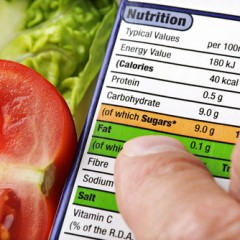PEOPLE READING THE LABELS ARE MORE SLIMMER
Supplements for promoting weight control
Supplements for promoting muscle mass

People who read food labels are more likely to remain thin over time.
An international team led by the University of Santiago de Compostela (Spain), together with the University of Tennessee and Arkansas (USA) and the Norwegian Institute for Agricultural Research, conducted a study, the researchers analyzed data collected from the annual survey National Health Interview (NHIS) carried out by the U.S. Centers for Disease Control and Prevention (CDC). Were collected approximately 25,640 observations on health and eating habits and commercial - in particular, whether the participants were accustomed to read the nutritional information in supermarkets and how often.
The team of researchers found significant differences between consumers who read labels and those who do not.
On the one hand, the study shows that the population of smokers pay much less attention to this information.
People who live in the city (49% of the sample) take more account of the nutritional information. This is also the case of people with college degrees (40% of respondents) and university (17% of total sample).
Based on gender, 58% of men and 74% of women read the information in nutrition labeling.
The average body mass index (BMI) for men who read nutrition labels is of 0.12 points less than men who do not read them, while women who read nutrition labels have 1:49 points lower BMI than women who do not read them.
The researchers concluded that: "These results imply that health education campaigns can use nutrition labels as a tool to reduce obesity."
Supplements for promoting weight control
Supplements for promoting muscle mass
